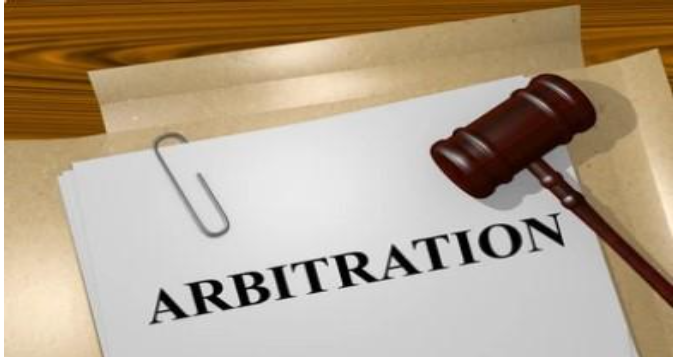Property Dispute Resolution in Bangalore
Introduction
When disputes arise, parties have various options for resolution. Two common pathways are litigation (court proceedings) and arbitration (a private, out-of-court process). Each has its unique characteristics, advantages, and drawbacks. Choosing between arbitration and litigation depends on factors such as time, cost, complexity, and confidentiality requirements. Here, we’ll explore both options to help you decide the best approach for resolving your dispute.
- What is Litigation?
Litigation is the traditional court-based process of resolving disputes, where parties present their case to a judge (or jury), and a legally binding decision is made based on evidence, laws, and precedents.
a. Key Features of Litigation:
- Public and Formal Process: Litigation occurs in court and is usually public, with formal procedures and strict adherence to legal rules.
- Binding and Enforceable: Court judgments are legally binding and can be enforced by law.
- Right to Appeal: Parties have the right to appeal decisions to a higher court if they believe there has been a legal error.
- Longer Timeline: Litigation can be time-consuming due to court backlogs and the detailed process of gathering and presenting evidence.
b. Pros and Cons of Litigation
Pros:
- Structured Process: Litigation follows a strict set of procedural rules, ensuring transparency and fairness.
- Legal Precedent: Court decisions rely on established laws and precedents, adding predictability to the outcome.
- Enforceability: Judgments from court are enforceable and can be appealed, which can benefit parties seeking legal certainty.
Cons:
- Time-Consuming: Litigation is known for its long timelines, often spanning several months or years, especially if appeals are involved.
- Public Exposure: Court proceedings are public, and sensitive business information may be disclosed.
- Costly: Litigation costs, including attorney fees and court fees, can be substantial, making it expensive for all parties involved.

2. What is Arbitration?
Arbitration is an alternative dispute resolution (ADR) process where parties present their case to a neutral third party (the arbitrator) outside of court. The arbitrator reviews the evidence, listens to both sides, and makes a legally binding decision.
a. Key Features of Arbitration:
- Private and Informal Process: Arbitration is a private process, allowing parties more control over the proceedings and confidentiality.
- Faster Resolution: Arbitration is often faster than litigation, with fewer procedural delays and flexible scheduling.
- Limited Grounds for Appeal: Arbitration decisions are binding, but appeal options are limited, making the arbitrator’s decision final in most cases.
- Cost Efficiency: While arbitration can still incur legal costs, it is often more cost-effective than litigation due to its streamlined process.
b. Pros and Cons of Arbitration
Pros:
- Confidentiality: Arbitration provides a private environment, protecting sensitive business information and reputations.
- Flexibility: Parties have greater control over scheduling, location, and even selection of the arbitrator, creating a more customized process.
- Speed: Arbitration usually results in faster resolutions due to streamlined procedures and fewer formalities.
- Expert Decision-Making: Arbitrators with specific expertise in certain industries can be appointed, leading to more informed decisions.
Cons:
- Limited Appeal: Arbitration decisions are final and binding, with very few options to challenge or appeal, even if new evidence arises.
- Cost of Arbitrators: Parties must bear the costs of hiring an arbitrator or arbitration panel, which can add to expenses, especially if multiple arbitrators are involved.
- No Legal Precedent: Arbitration decisions do not create legal precedents, which can be a disadvantage in complex cases involving evolving areas of law.

3. When to Choose Litigation?
Litigation is often the preferred route for disputes involving complex legal questions or situations where a legally binding precedent is needed. It may be suitable for cases that involve:
- Public Interest or High Stakes: In cases involving public rights or regulatory compliance, court oversight is essential.
- Legal Rights and Appeals: If a party wants to retain the option to appeal, litigation provides this avenue.
- Significant Assets or Injunctions: When parties require powerful, enforceable remedies like asset seizure or injunctive relief, litigation is typically the best choice.
4. When to Choose Arbitration
Arbitration may be the best route for disputes that require speed, confidentiality, and flexibility. Common scenarios for choosing arbitration include:
Long-Term Contracts: Many long-term agreements, such as construction or franchise contracts, include arbitration clauses to provide a structured and less contentious method for future disputes.
Business-to-Business (B2B) Disputes: In industries where confidentiality is essential and disputes require technical knowledge, arbitration is highly effective.
International Disputes: Arbitration is often preferred in cross-border disputes due to its neutrality and enforceability under international treaties like the New York Convention.
5. Key Considerations for Making the Right Choice
To choose between arbitration and litigation, parties should consider the following factors:
- Confidentiality Needs: If privacy is a priority, arbitration is the better choice as it keeps disputes and evidence out of the public eye.
- Timelines: For faster resolution, arbitration offers a streamlined process, especially when court backlogs could delay litigation for months or even years.
- Cost: Although both arbitration and litigation can be costly, arbitration may reduce expenses by shortening the duration and limiting formal procedures.
- Appeal Rights: Litigation offers a multi-tiered appeals process, which could benefit parties who want the option to challenge decisions.
Type of Dispute: Arbitration may be better suited for technical, specialized disputes, while litigation is often ideal for complex legal matters or those involving public policy.
Conclusion
Choosing between arbitration and litigation is a strategic decision based on the nature of the dispute, the parties’ priorities, and the resources available. Arbitration offers a quicker, more private resolution with limited appeal rights, making it ideal for business or cross-border disputes. Litigation, on the other hand, provides a formal, enforceable, and public process with established legal precedents, appealing to parties seeking judicial oversight and appeal options.
Both methods have their unique benefits and drawbacks, so it’s essential to evaluate each option’s implications carefully. Consulting with legal professionals who understand both processes and your specific needs can help ensure you select the best path for dispute resolution.
Disclaimer:
The information provided in this article is for general informational purposes only and does not constitute legal advice. While efforts have been made to ensure the accuracy of the content, Bisani Legal and its representatives are not responsible for any errors or omissions, or for any outcomes resulting from reliance on this information. Readers are advised to consult a qualified legal professional for specific legal guidance related to their individual property matters. The use of this article does not establish an attorney-client relationship between the reader and Bisani Legal.
Published by: Mr. Saket bisani
Date: 04/11/2024


